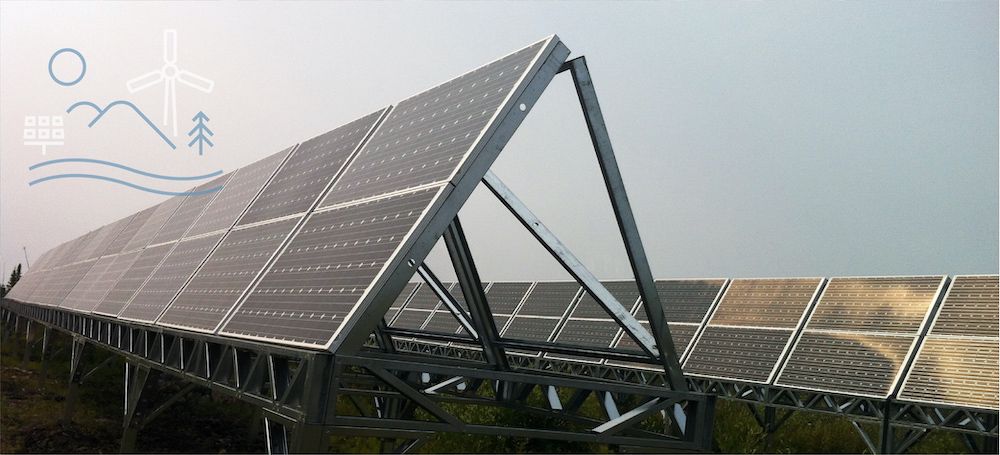
Supporting communities through the clean energy transition
RESOURCES
Series: Climate and energy policy advancements
Series: Remote Communities Energy in Transition
As part of our commitment to supporting Indigenous remote communities as they transition off diesel, we develop tools and resources, hold workshops and webinars and help build technical and policy capacity in communities.
These efforts are driven through a commitment to strong and respectful relations with Indigenous Peoples and communities.
What we offer
 Community support
Community support
Providing climate and energy policy expertise directly to communities and community clean energy champions to support project development and clean energy advocacy efforts.
 Education
Education
Developing resources, building knowledge, and simplifying the complex technical, policy, and regulatory aspects of the clean energy transtion for Indigenous communities, businesses, and energy champions.
Engagement and support
For inquiries about how Pembina can support your community's energy transition, contact us.
Series: Climate and energy policy advancements
The Climate and energy policy advancements: Eliminating diesel in Canada’s remote communities, series provides insights, details and analysis of each of the specific policies we advocate for under our Renewables in Remote Communities (RiRC) program. This series was developed as part of the Pembina Institutes' participation in the Indigenous Off-diesel Initiative (IODI).
Expand to read about the key policy recommendations stemming from the Eliminating diesel in Canada’s remote communities series.
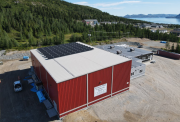
Clean energy capacity building in remote communities
Lessons learned from the Pembina Institute's involvement in the Indigenous Off-diesel Initiative

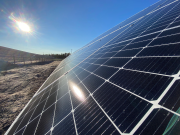
Government action on UNDRIP and the clean energy transition
Upholding the rights of Indigenous Peoples is key to the energy transition in remote communities

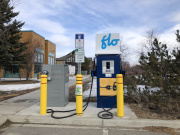
How remote communities should be included in the push to electrify transportation
Government funding and programming need to address the unique barriers remote communities face
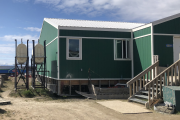
Remote communities transitioning to clean energy need better housing
Governments must prioritize energy efficiency to successfully reduce diesel dependency
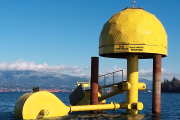
Three clean energy options that could help replace diesel
Hydrogen, small modular reactors and energy generated by the ocean are all under consideration in remote communities

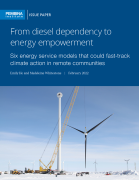
From diesel dependency to energy empowerment
Six energy service models that could fast-track climate action in remote communities

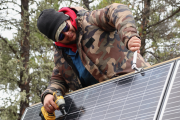
When business-as-usual is a barrier to clean energy
In remote communities, utilities need to change to meet climate goals and consumer needs
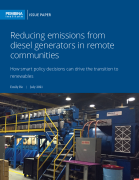
Reducing emissions from diesel generators in remote communities
How smart policy decisions can drive the transition to renewables
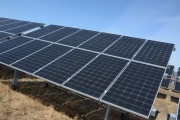
Better government policies will unlock the cash remote Indigenous communities need for clean energy
Innovative government funding policy and strategic private partnerships are essential to finance Indigenous-owned power generation
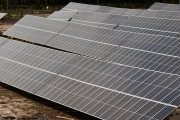
What’s a fair and equitable price for renewable energy in remote communities?
The rate structure of power purchase agreements in remote communities needs radical transformation to advance renewable energy projects
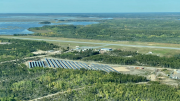
How to boost renewable energy integration in remote communities
Energy policy needs to catch up as innovations allow for effective integration of renewables in microgrids

Rethinking energy policy in Canada’s remote communities
Moving from the diesel of the past to a clean energy future
Series: Remote Communities Energy in Transition
This Remote Communities Energy in Transition series offers analysis on the challenges, opportunities, and solutions associated with the integration of renewable energy into remote communities’ microgrids. These publications cover the advancements in technical, financial, and human capacity, energy policy, and regulations needed to transition remote communities to clean energy.
Expand to explore our research and analysis from the Remote Communities Energy in Transition series.
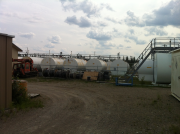
Tracking diesel reduction progress in remote communities
Report shows current diesel use in remote communities, and outlines goals and future opportunities for diesel reduction
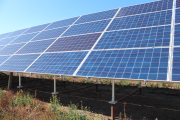
How B.C. can be a leader in economic reconciliation
B.C.’s Indigenous utility regulatory inquiry – what does it all mean?

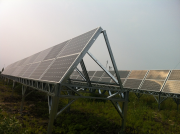
Rebuilding Canada’s economy includes energy resiliency in remote communities
Communities need a thoughtful economic rebuild that makes us more resilient
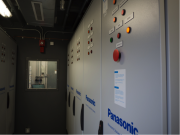
The future of the electric utility in Canada’s remote communities
Regulatory and business model reforms could accelerate clean energy transition
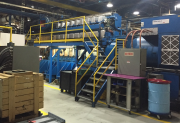
Remote communities meet renewable energy solutions
Challenges and opportunities for hybrid microgrids

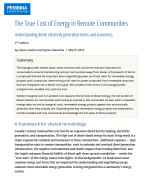
The True Cost of Energy in Remote Communities
Understanding diesel electricity generation terms and economics — 2nd edition

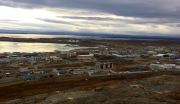
Diesel, renewables, and the future of Canada’s remote communities
Introduction to microgrids

More research and analysis
Interested in learning more? More research, analysis, and other publications can be found here.
